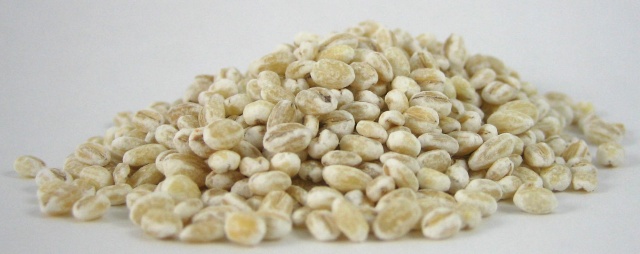Barley
- Barley is a plant. The grain of barley is used to make medicine.
Contents
Uses
- Barley is used for lowering blood sugar, blood pressure, and cholesterol, and for promoting weight loss. It is also used for digestive complaints including diarrhea, stomach pain, and inflammatory bowel conditions.
- Some people use barley for increasing strength and endurance. Other uses include cancer prevention and treatment of a lung problem called bronchitis.
- Barley is applied to the skin for treating boils.
- In foods, barley is used as a source of vitamins, carbohydrates, proteins, and fatty oils.
- In manufacturing, barley is used as a food grain, natural sweetener, and as an ingredient for brewing beer and making alcoholic beverages.
Benefits
- The fiber in barley might lower cholesterol and blood pressure in people with high cholesterol. Barley may also reduce blood sugar and insulin levels. Barley seems to slow stomach emptying. This could help keep blood sugar stable and create a sensation of being full, which might help to control appetite.
Cautions
- Barley is LIKELY SAFE for most people when taken by mouth appropriately. Barley flour can sometimes cause asthma.
- Pregnancy and breast-feeding: Barley is LIKELY SAFE when taken by mouth during pregnancy in amounts commonly found in foods. However, barley sprouts are POSSIBLY UNSAFE and should not be eaten in high amounts during pregnancy.
- There is not enough reliable information about the safety of taking barley if you are breast-feeding. Stay on the safe side and avoid use.
- Celiac disease or gluten sensitivity: The gluten in barley can make celiac disease worse. Avoid using barley.
- Allergies to cereal grains: Consuming barley might cause an allergic reaction in people who are sensitive to other cereal grains, including rye, wheat, oat, corn and rice.
- Diabetes: Barley might lower blood sugar levels. Your diabetes medications might need to be adjusted by your healthcare provider.
- Surgery: Barley might lower blood sugar levels. There is a concern that it might interfere with blood sugar control during and after surgery. Stop using barley at least 2 weeks before a scheduled surgery.
Interactions
Moderate Interaction Be cautious with this combination:
- Medications for diabetes (Antidiabetes drugs) interacts with BARLEY: Barley might decrease blood sugar by decreasing the absorption of sugars from food. Diabetes medications are also used to lower blood sugar. Taking barley with diabetes medications might cause your blood sugar to be too low. Monitor your blood sugar closely. The dose of your diabetes medication might need to be changed.
- Some medications used for diabetes include glimepiride (Amaryl), glyburide (DiaBeta, Glynase PresTab, Micronase), insulin, pioglitazone (Actos), rosiglitazone (Avandia), chlorpropamide (Diabinese), glipizide (Glucotrol), tolbutamide (Orinase), and others.
- Medications taken by mouth (Oral drugs) interacts with BARLEY:
- Barley contains a large amount of fiber. Fiber can decrease how much medicine the body absorbs. Taking barley along with medicine you take by mouth can decrease the effectiveness of your medication. To prevent this interaction take barley at least 1 hour after medications you take by mouth.
Other Names
Barley Beta-Glucan, Barley Bran, Barley Grass, Barley Malt, Bêta-Glucane d’Orge, Cebada, Cereal Fiber, Dietary Fiber, Fibre Alimentaire, Fibre de Céréale, Green Barley, Green Barley Grass, Herbe d’Orge, Herbe d’Orge Verte, Hordeum, Hordeum Distichon, Hordeum distychum, Hordeum vulgare, Mai Ya, Malt d’Orge, Malt d’Orge Germée, Orge, Orge Germée, Orge Perlé, Orge Mondé, Pearl Barley, Pot Barley, Scotch Barley, Son d’Orge, Sprouted Barley, Sprouted Barley Malt.
References
Source: WebMD, “Barley”, www.webmd.com/vitamins-supplements/

